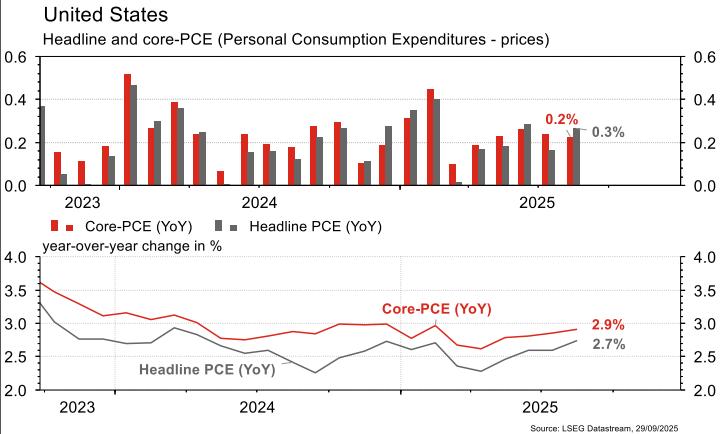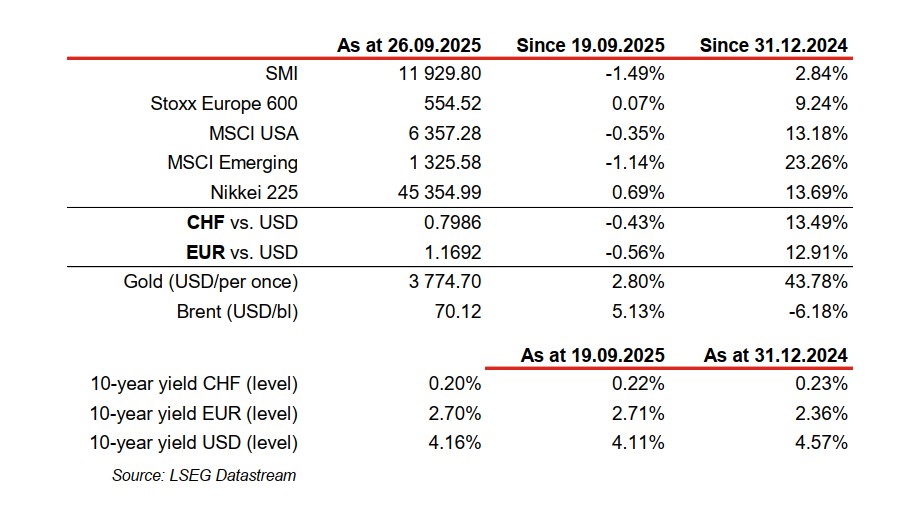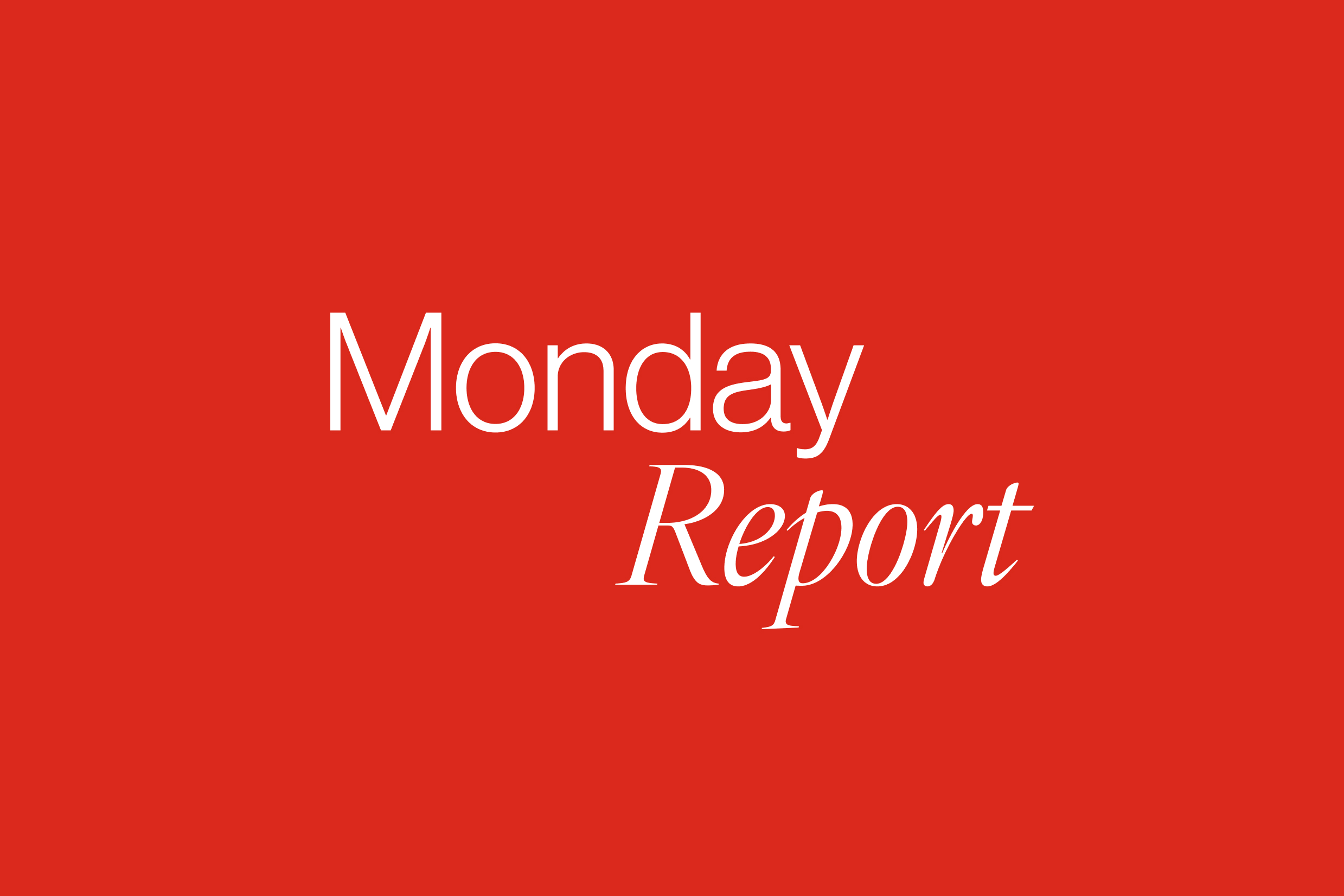Nutzungsbedingungen der Bordier E-Services
Der Kunde hat sich für die E-Banking-Lösung der Bank entschieden, um sein Konto bei der Bank über eine sichere elektronische Verbindung zu nutzen. Die Website der Bank und die Bordier-App ermöglichen dem berechtigten Nutzer die Online-Abfrage des Kontos über mobile Anwendungen; letztere werden in ihrer Gesamtheit nachstehend als „E-Services“ bezeichnet.
1. Arten von E-Services
1.1 Die Bank stellt dem Kunden derzeit die E-Services mit folgenden Elementen zur Verfügung: a) einen gesicherten Zugang zu jedem Konto des Kunden in einem separaten Login-Bereich auf der Website der Bank („Web-Banking“); b) einen gesicherten Zugang zu jedem Konto des Kunden über eine auf einem mobilen Gerät installierte App („Mobile-Banking“).
1.2 Mit den E-Services kann der Kunde einerseits den aktuellen Stand seiner Konten abfragen, auf die er nach eigenen Angaben über die E-Services zugreifen will, und andererseits Informationen über seine bestehenden Anlagen abrufen. Ferner kann der Kunde auf eigenes Risiko bestimmte von der Bank bereitgestellte Analysetools nutzen. Obwohl die Bank bestrebt ist, sowohl für das Web-Banking als auch das Mobile-Banking vergleichbare Funktionalitäten anzubieten, ist sich der Kunde darüber im Klaren, dass es aufgrund technischer Beschränkungen Unterschiede zwischen den Möglichkeiten des Web-Banking und des Mobile-Banking geben kann.
1.3 Zur Nutzung der E-Services muss sich der Kunde zunächst mit dem von der Bank vorgegebenen Verfahren registrieren (beispielsweise über die Identifikation spezifischer Konten, die anhand der E-Services abgefragt können) und Abschnitt acht der vorliegenden Allgemeine Geschäftsbedingungen sowie alle anderen Bedingungen einhalten, die von der Bank für einen bestimmten E-Service vorgeschrieben werden. Es wird vorausgesetzt, dass der Kunde die vorliegenden Bedingungen sowie alle anderen von der Bank generell und für die E-Services vorgegebenen Bedingungen ab dem Moment, in dem er eine Bestätigungstaste anklickt oder antippt, oder ab dem Zeitpunkt der erstmaligen Nutzung der E-Services (vorbehaltlos) akzeptiert (wobei der jeweils frühere Zeitpunkt berücksichtigt wird).
1.4 Ohne Einschränkung der Allgemeingültigkeit von Vorstehendem hängt die Nutzung des Mobile-Banking davon ab, ob das mobile Gerät mit den von der Bank vorgegebenen Spezifikationen und dem Endbenutzer-Lizenzvertrag für die mobile Anwendung („Endnutzer-Lizenzvertrag für die mobile App“ – „EULA für die mobile App“) im Einklang steht. Der EULA für die mobile App ist nach dem Herunterladen über die App verfügbar. Vor der ersten Nutzung der App muss der Kunde sein Einverständnis mit dem EULA für die mobile App bestätigen. Die Bank kann den EULA für die mobile App jederzeit aktualisieren oder ändern, wird den Kunden davon jedoch in Kenntnis setzen. In diesem Fall muss der Kunde diesen Änderungen zustimmen, bevor er die Nutzung des Mobile-Banking fortsetzen kann. Andernfalls kann die Bank den angebotenen Service nicht aufrechterhalten.
2. Zugang zu den E-Services
2.1 Der Zugang zu den E-Services erfolgt anhand folgender Elemente: a) eine von der Bank zugewiesene Nutzeridentifikation („User-ID“); b) eine persönliche Identifikationsnummer („PIN“), die zunächst von der Bank zugewiesen wird, die der Kunde aber bei erster Gelegenheit unbedingt nach seinem Dafürhalten ändern muss, wobei er die von der Bank festgelegten Spezifikationen einhalten muss; und c) ein Authentifizierungsgerät („OTP-Gerät“), das ein Einmalpasswort („OTP“) generiert; dieses Passwort ist zusammen mit der User-ID und der PIN bei jedem Zugriff erforderlich. Die geänderte PIN ist der Bank nicht bekannt.
2.2 Für jeden Kunden existiert nur eine einzige User-ID und eine PIN. Die Bank wird jedem Kunden jedoch bis zu zwei OTP-Geräte aushändigen.
2.3 Der Kunde trägt die alleinige Verantwortung für die Aufbewahrung der User-ID, der PIN und aller von der Bank ausgegebenen OTP-Geräte (auch wenn sich diese OTP-Geräte nicht physisch in seinem Besitz befinden). Der Kunde muss die Bank so schnell wie möglich informieren, wenn er glaubt oder vermutet, dass seine User-ID oder seine PIN verloren gegangen ist oder kompromittiert sein könnte oder wenn ein OTP-Gerät gestohlen wurde. Sofern keine Benachrichtigung erfolgt, kann die Bank voraussetzen, dass die Person, die einen E-Service anhand der Kombination aus User-ID, PIN und einem von einem OTP-Gerät generierten OTP nutzt, entweder der Kunde selbst oder eine vom Kunden ordnungsgemäss bevollmächtigte Person ist. Zur Vermeidung von Zweifelsfällen verpflichtet sich der Kunde gegenüber der Bank zur Ratifizierung (bzw. zur Annahme) aller Handlungen einer Person, die gemäss dem in diesem Dokument angegebenen Verfahren auf einen E-Service zugreift.
2.4 Die Bank kann nach eigenem Ermessen vom Kunden die Zahlung einer Gebühr zur Deckung der Kosten für die Bereitstellung eines dritten und jedes weiteren OTP-Geräts verlangen.
3. Haftungsausschluss für Informationen, die über die E-Services verfügbar sind.
3.1 Die E-Services ermöglichen dem Kunden den Zugang zu Informationen über die Konten, die er nach eigenen Angaben anhand der E-Services aufgerufen hat, sowie über die Transaktionen auf diesen Konten. Die Bank kann dem Kunden auch verschiedene Analysetools zur Verfügung stellen, die der Kunde auf eigene Gefahr nutzen kann. Alle Informationen, die dem Kunden über die E-Services zur Verfügung gestellt werden (einschliesslich der Analysetools) sind grundsätzlich unpersönliche Informationen. Der Kunde bestätigt, dass seine spezifischen Anlageziele, seine finanzielle Situation oder seine besonderen Anforderungen in diesen Informationen nicht berücksichtigt werden.
3.2 Alle dem Kunden über die E-Services zur Verfügung gestellten Informationen (einschliesslich der Analysetools) werden entweder von der Bank und ihren verbundenen Unternehmen zur Verfügung gestellt oder stammen aus Quellen, die von der Bank und ihren verbundenen Unternehmen ausgewählt wurden. Obwohl alle angemessenen Vorkehrungen getroffen werden, um sicherzustellen, dass sämtliche bereitgestellten Informationen richtig, exakt und vollständig sind, machen die Bank und ihre verbundenen Unternehmen keine Zusicherungen und übernehmen keine Garantie für die Richtigkeit oder Vollständigkeit dieser Informationen oder der mit den Analysetools erzeugten Ergebnisse. Vor allem Aktien- oder Wechselkurse, die über die E-Services mitgeteilt werden, dienen ausschliesslich Hinweiszwecken und sind für die Bank nicht bindend. Aus technischen Gründen kann eine zeitliche Verzögerung zwischen dem Zeitpunkt der Anzeige oder der Verbreitung von Informationen wie Aktienkurse und andere Daten an einem betroffenen Markt und dem Zeitpunkt entstehen, zu dem diese Informationen dem Kunden über die E-Services zur Verfügung gestellt werden. Die Bank haftet nicht für Verluste oder Schäden, die dem Kunden infolge oder im Zusammenhang mit einer solchen Verzögerung oder durch die Nutzung der Analysetools entstehen.
3.3 Falls die über die E-Services bereitgestellten Informationen Meinungsäusserungen der Bank enthalten, geben diese Meinungen lediglich die Einschätzung der Bank zum Zeitpunkt der Meinungsäusserung wieder und können ohne vorherige Ankündigung geändert werden, insbesondere bei einer Änderung der Marktbedingungen. Diese Meinungen dürfen nicht als Empfehlung der Bank an den Kunden für den Kauf, die Veräusserung oder die Auflösung einer Anlage verstanden werden. Falls die über die E-Services bereitgestellten Informationen von Dritten mitgeteilte Meinungen enthalten, bestätigt der Kunde, dass die Bank für diese Meinungsäusserungen nicht verantwortlich ist und nicht vorausgesetzt werden darf, dass sie diese billigt.
3.4 Gemäss Teil I, Abschnitt II, Artikel 6 der Allgemeinen Geschäftsbedingungen darf aufgrund der Bereitstellung eines E-Service durch die Bank nicht davon ausgegangen werden, dass sie dem Kunden eine Anlageberatung als Dienstleistung erbringt oder als Berater oder Treuhänder handelt. Der Kunde darf die über die E-Services bereitgestellten Informationen nicht als massgebende Referenz oder Ersatz für die Nutzung eigener Fähigkeiten und seines eigenen Urteilsvermögens bei der Entscheidungsfindung betrachten. Bei diesen Informationen werden die spezifischen Anlageziele, die finanzielle Situation und die besonderen Bedürfnisse des Kunden möglicherweise nicht berücksichtigt. Vor einer Anlageentscheidung bestätigt der Kunde, dass er sich mit der Art der Transaktion vertraut machen und alle relevanten Rechts- oder Informationsdokumente (einschliesslich des Prospekts oder des Basisinformationsblatts) zur Kenntnis nehmen wird. Der Kunde ist damit einverstanden, dass die Bank nicht zur Erteilung von Ratschlägen verpflichtet ist und dass er sich zu diesem Zweck an seine eigenen Finanzberater wenden muss. Folglich akzeptiert der Kunde, dass die Bank nicht für die Folgen von Entscheidungen haftet, die er infolge der Nutzung eines E-Service trifft.
4. Zugriff durch die Mitarbeiter der Bank
4.1 Der Kunde bestätigt und erklärt sich damit einverstanden, dass die Bank mit verschiedenen Mitteln (einschliesslich der Verwendung von allgemein auch als „Cookies“ bezeichneten Softwareprogrammen und vergleichbaren technologischen Tools) auf Informationen im Zusammenhang mit der Nutzung der E-Services durch den Kunden zugreifen und diese erfassen kann – diese Nutzung kann im Falle des Mobile-Banking Informationen umfassen, die sich auf die allgemeine Nutzung des mobilen Geräts durch den Kunden beziehen. Der Kunde akzeptiert und erlaubt der Bank diesen Zugriff.
4.2 Falls der oben genannte Zugriff die Erhebung personenbezogener Daten beinhaltet, die dem Datenschutzgesetz unterliegen, richtet sich die Art der Verarbeitung dieser personenbezogenen Daten nach der Datenschutzrichtlinie der Bank, die auf ihrer Website verfügbar ist.
B. VON DER BANK BEREITGESTELLTES ELEKTRONISCHES POSTFACH
1. Beschreibung
1.1 Der Kunde verfügt aufgrund des Zugangs zu den E-Services über ein sicheres elektronisches Postfach, das er für den Erhalt üblicher, nicht dringender Mitteilungen der Bank sowie den Versand üblicher, nicht dringender Mitteilungen an die Bank verwenden kann.
1.2 Alle auf elektronischem Weg in dieses sichere elektronische Postfach übermittelten Dokumente (darunter insbesondere Mitteilungen, Kontoauszüge und Bewertungen) gelten als Originaldokumente mit der gleichen Rechtswirkung wie bei einem Versand per Post. Sie gelten gemäss den Aufzeichnungen der Bank, die der Kunde als endgültig und beweiskräftig anerkennt, als dem Kunden zugestellt, sobald sie im elektronischen Postfach eingegangen sind, sofern kein offensichtlicher Fehler vorliegt. Diese Dokumente werden grundsätzlich zwei (2) Jahre lang (bzw. einer anderen von der Bank festgelegten Aufbewahrungsfrist) ab dem Eingangsdatum im elektronischen Postfach aufbewahrt. Nach Ablauf dieser Aufbewahrungsfrist können vom Kunden nicht gelesene Dokumente von der Bank aus dem elektronischen Postfach gelöscht werden, wobei die Bank dem Kunden gegenüber keine Haftung übernimmt.
1.3 Der Kunde wird allerdings erst dann über den Eingang von Mitteilungen in diesem Postfach informiert, wenn er sich anhand der E-Services eingeloggt hat. Darüber hinaus ist die Bank nicht verpflichtet, den Kunden an die regelmässige Abfrage des Postfachs zu erinnern oder ihn hierzu aufzufordern. Folglich bestätigt der Kunde, dass das elektronische Postfach kein geeignetes Mittel für den Erhalt dringender oder zeitkritischer Mitteilungen der Bank ist.
C. ALLGEMEINE BESTIMMUNGEN
1. Technischer Support
Zur Unterstützung des Kunden bei technischen Problemen im Zusammenhang mit den E-Services stellt die Bank an jedem Wochentag (ausgenommen Bankfeiertage und gesetzliche Feiertage) zwischen 9 und 18 Uhr einen technischen Support zur Verfügung.
2. Risiken aufgrund der Internet-Nutzung
2.1 Die E-Services werden von der Bank im Internet bereit gestellt, entweder über den Web-Browser eines PC, ein mobiles Gerät oder eine App, die auf ein vom Kunden verwendetes mobiles Gerät heruntergeladen und installiert wird.
2.2 Das Internet ist ein öffentliches Netzwerk, auf das die Bank keinen Einfluss hat. Der Kunde ist sich darüber im Klaren, dass die Nutzung des Internets mit verschiedenen Risiken verbunden ist, für die er die alleinige Verantwortung übernimmt. Zu diesen Risiken gehören möglicherweise der elektronische Diebstahl des Nutzernamens und des Passworts des Kunden sowie das Hacken eines beliebigen Kundenkontos. Dies kann zu einem unbefugten Zugriff auf Gelder und sonstige Vermögenswerte führen sowie zum Diebstahl anderer Informationen und zu weiteren Verlusten. Der Kunde trägt ausserdem das Risiko, dass sein PC oder sein mobiles Gerät mit Viren, Spyware und anderen Formen von Malware infiziert wird und dass sich Dritte durch den Einsatz von Softwareprogrammen (allgemein bekannt als „Cookies“) und vergleichbaren technologischen Tools heimlich einen unbefugten Zugang zu seinem PC oder mobilen Gerät (und zu allen darauf gespeicherten Informationen) verschaffen. Dem Kunden ist ferner bewusst, dass Nachrichten, die er der Bank beispielsweise per E-Mail oder Textnachricht sendet, nicht unbedingt vor einem Hackerangriff oder einem unberechtigten Zugriff geschützt sind, selbst wenn sie über ein gesichertes Medium oder verschlüsselt versendet werden. Die Bank trifft zwar alle angemessenen Sicherheitsvorkehrungen, um sich gegen diese Risiken zu schützen, einschliesslich der Verwendung von Verschlüsselungsprotokollen zur Sicherung der in ihrem Besitz befindlichen Informationen und der an sie gesendeten Nachrichten, trotzdem kann ein Hackerangriff oder ein unbefugter Zugriff nicht völlig ausgeschlossen werden.
2.3 Der Kunde nimmt ferner das Risiko von technischen Fehlern in Kauf, die in der Regel durch die Verwendung von Computern, mobilen Geräten und anderen Geräten entstehen. Derartige Fehler können zu Verlusten oder Schäden verschiedenster Art führen, sowohl zu direkten als auch als Folgeschäden, für die die Bank jede Haftung ablehnt.
2.4 Der Kunden muss angemessene Massnahmen ergreifen, um einen unbefugten Zugriff auf seinen PC oder sein mobiles Gerät zu verhindern. Nutzernamen und PIN-Codes dürfen niemals Unbefugten preisgegeben werden. Diese sowie die von der Bank ausgehändigten OTP-Geräte müssen jederzeit sicher aufbewahren werden, wobei alle angemessenen Massnahmen zur Verhinderung eines unbefugten Zugriffs zu ergreifen sind. Der Kunde muss seine PIN regelmässig ändern und darf keine PIN wählen, die von Dritten leicht zu erraten ist. Die von einem OTP-Gerät erzeugten OTP dürfen niemandem preisgegeben werden. Diese Pflichten obliegen dem Kunden unter seiner Verantwortung, auch wenn er einer anderen bevollmächtigen Person in seinem Namen den Zugang zu den E-Services erlauben kann. Sollte der Kunde vermuten, dass sein Nutzername, sein Passwort oder sein Sicherheitstoken gestohlen, verloren oder anderweitig kompromittiert wurde, ist er verpflichtet, die Bank unverzüglich darüber zu informieren.
2.5 Im grösstmöglichen gesetzlich zulässigen Umfang übernimmt die Bank keine Haftung für Verluste oder Schäden, die dem Kunden durch die Nutzung der E-Services entstehen, einschliesslich Verlusten oder Schäden durch Systemstörungen, Netzwerkausfälle, Übertragungsfehler und -verzögerungen oder arglistige Handlungen Dritter.
3. Urheberrecht
Sofern nicht anders angegeben, sind alle über die E-Services bereitgestellten Informationen urheberrechtlich geschützt, wobei diese Urheberrechte bei der Bank, einem anderen Mitglied der Bordier-Gruppe oder anderen Dritten liegen können. Dem Kunden wird eine beschränkte, nicht übertragbare und nicht unterlizenzierbare Lizenz für die Nutzung der E-Services gewährt, die er ausschliesslich für den Zugang zu Informationen über die Konten, die er laut eigenen Angaben mittels E-Services abfragen will, und Transaktionen auf diesen Konten nutzen kann. Der Kunde erwirbt keine Rechte an geistigem Eigentum durch die blosse Nutzung des Web-Banking oder durch das blosse Herunterladen und Speichern von Software in Verbindung mit dem Mobile-Banking. Die E-Services sind dem privaten und persönlichen Gebrauch vorbehalten, wobei die Bereitstellung der E-Services nicht mit einer erweiterten Lizenz oder einem Recht zur Nutzung der Informationen oder Inhalte (einschliesslich Texte, Grafiken, Bilder, Handelsmarken, Dienstleistungsmarken und Logos) für andere Zwecke (einschliesslich kommerzieller oder professioneller Zwecke) gleichzusetzen ist. Der Kunde verpflichtet sich, die Informationen, die er über die E-Services erhält, nicht zu vervielfältigen oder an Dritte weiterzugeben.
4. Lokale Beschränkungen
Entsprechend der örtlichen Vorschriften und den am Wohnsitz des Kunden geltenden Bestimmungen behält sich die Bank das Recht vor, bestimmte Arten von Informationen oder Tools nicht zur Verfügung zu stellen; die Bank kann die Verfügbarkeit der E-Services oder die Bedingungen, unter denen ein E-Service bereitgestellt wird, ohne vorherige Ankündigung ändern.
5. Beendigung der E-Services
5.1 Der Kunde kann den Zugang zu den E-Services jederzeit durch schriftliche Mitteilung an die Bank beenden. Desgleichen kann die Bank die Bereitstellung der E-Services für den Kunden jederzeit durch schriftliche Mitteilung an den Kunden beenden, ohne dass sie ihre Entscheidung begründen muss, insbesondere wenn sie arglistige oder betrügerische Versuche (Hackerangriff) vermutet, welche die Vertraulichkeit der über die E-Services übertragenen Informationen gefährden, oder aus anderen Gründen.
5.2 Die Kündigung des Web-Banking durch den Kunden zieht zwangsläufig die Kündigung des Mobile-Banking nach sich; der Kunde hat jedoch die Möglichkeit, nur das Mobile-Banking zu kündigen, das Web-Banking dagegen weiterhin zu nutzen. Bei der Kündigung des Mobile-Banking muss der Kunde aus Sicherheitsgründen jedoch die App auf allen mobilen Geräten, die für das Mobile-Banking verwendet werden, deinstallieren oder löschen.
5.3 Die Kündigung aller E-Services hat nicht zwangsläufig die Beendigung einer weiterreichenden Vertragsbeziehung zwischen Bank und Kunden zur Folge, sofern von den Parteien nichts anderes vereinbart wird. Bei einer Einstellung des Zugangs oder der Bereitstellung von E-Services kann die Bank vom Kunden die Rückgabe aller OTP-Geräte und aller sonstigen Installationskits verlangen, die sie dem Kunden gegebenenfalls zur Verfügung gestellt hat.
6. Geltendes Recht und Gerichtsstand
Alle Beziehungen zwischen den Parteien kraft dieses Vertrags unterliegen ausschliesslich Schweizer Recht und sind nach diesem auszulegen. Die Parteien vereinbaren unwiderruflich, dass die Schweizer Gerichte für die Beilegung aller Streitigkeiten zuständig sind, die sich aus oder im Zusammenhang mit diesem Vertrag ergeben, und dass folglich alle Rechtsverfahren, die sich aus oder im Zusammenhang mit diesem Vertrag ergeben, vor diese Gerichte gebracht werden können. Das Recht der Bank auf Anstrengung eines Rechtsverfahrens gegen den Kunden bei einem anderen zuständigen Gericht wird durch keine Bestimmung dieser Klausel eingeschränkt, wobei die Anstrengung eines solchen Rechtsverfahrens in einer oder mehreren Gerichtsbarkeiten der Anstrengung eines Verfahrens in einer anderen Gerichtsbarkeit, ob gleichzeitig oder zeitverzögert, nicht im Wege steht, sofern dies gemäss geltendem Recht zulässig ist. Der Kunde verzichtet unwiderruflich auf alle Einwände, die er jetzt oder in Zukunft gegen die Schweizer Gerichte für die Zwecke dieses Vertrags aus Gründen der Zuständigkeit oder aus anderen Gründen vorbringen könnte, und verzichtet auf das Argument, dass ein solches Gericht kein angemessener oder geeigneter Gerichtsstand sei.







